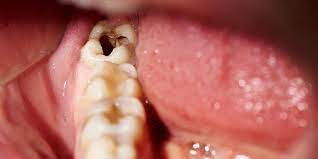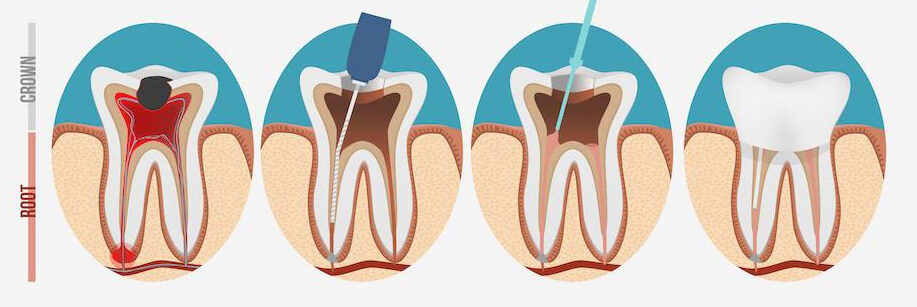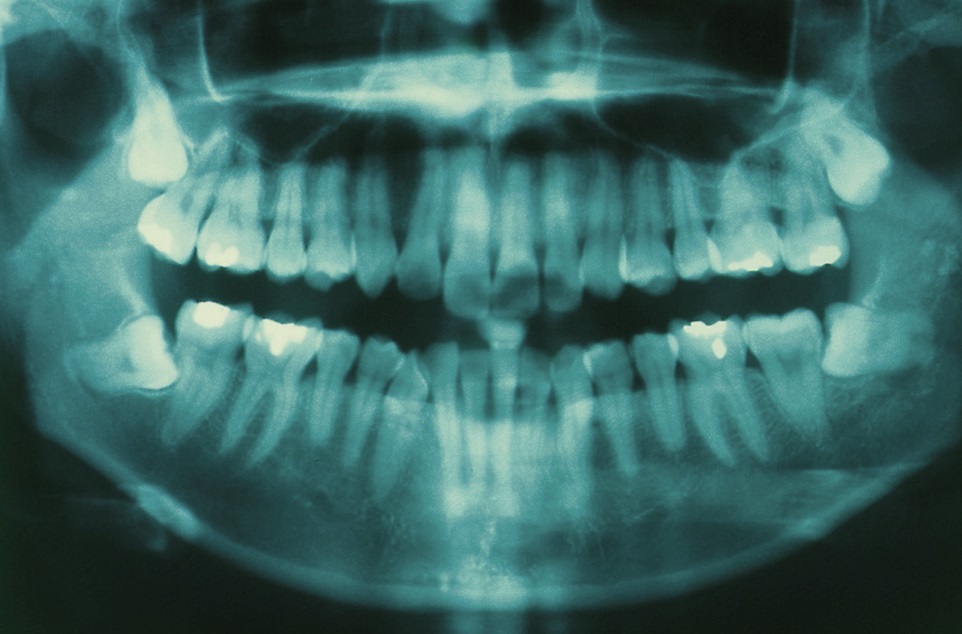
Wisdom teeth can be a source of pain and discomfort for many when it becomes impacted. However, the situation is worsened if cavities have formed in your wisdom tooth.
Wisdom teeth are the third set of molars and last of your adult teeth to come through. Due to its being located at the back of your mouth, the wisdom teeth are difficult to clean and maintain. As such, they are more susceptible to oral health problems such as cavities.
A wisdom tooth cavity occurs when decay or damage affects one or more of your wisdom teeth. If left untreated, this decay can lead to further dental complications, such as pain and infection. While brushing and flossing regularly can help prevent cavities, they still occur in many cases due to the hard-to-reach nature of wisdom teeth.
In this blog, we will discuss the causes and symptoms of wisdom tooth cavities, as well as treatment options and prevention tips. We hope this will help you understand and manage any wisdom teeth problems you may be facing.
What Is a Cavity?
A cavity, also known as tooth decay or dental caries, is a common dental problem that results from the erosion of the hard, outer layer of your teeth called enamel. The decay occurs when bacteria in the mouth produce acids that eat away at the enamel, leading to the formation of small holes or openings called cavities.

The symptoms of a cavity can vary depending on the severity and location of the decay. In the early stages, you may not experience any symptoms at all, making it difficult to detect the cavity. This is especially so when the cavity is located in the wisdom teeth and can’t be seen well. As the decay progresses, you may experience symptoms such as pain, sensitivity, and dark spots on the teeth.
In spite of nasty cavities can be, they are preventable when good oral hygiene is practiced. This includes:
- Brushing your teeth twice a day with a fluoride toothpaste
- Flossing of the teeth once a day
- Limiting your intake of sugary and acidic food and drinks
- Getting dental check-ups bi-annually
How Are Cavities Treated?
There are several treatment options available to treat cavities, and each has its own pros and cons. Your dentist or oral surgeon will conduct a thorough assessment of your teeth to determine the most appropriate treatment option based on the location and severity of the decay.
- Fluoride Treatment. A fluoride treatment can be effective in reversing any damage and preventing the progression of early-stage cavities. The procedure
- Fillings. This is the most common treatment for cavities. The dentist will first remove the decayed part of the tooth with a dental drill, laser, or air abrasion tool. The cavity is then filled with a dental fillings such as gold, ceramic, silver amalgam, composite resin, or glass ionomer materials. Depending on the filling material, a dental curing light which emits a concentrated blue light may be used to harden the filling.
- Crowning.If the cavity is too large for a filling, your dentist may recommend the use of a dental crown. A crown, also known as a dental cap, is a tooth-shaped cap that covers the entire tooth. Similar to fillings, the decay is first removed and the tooth is shaped to support the crown. Impressions of the tooth is then taken to create a custom-made crown. A temporary crown is placed over the prepared tooth while waiting for the permanent crown to be manufactured. For the final step of the procedure, the temporary crown is removed and replaced with a permanent crown. The permanent crown is cemented in place and cannot be removed without the use of specialized dental instruments.
- Root canal. When the extent of decay is severe, a root canal is necessary. The procedure involves the removal of the infected pulp to prevent any further infection to the tooth as well as the adjacent teeth. Once removed, the insides of the pulp chamber is cleaned and filled to seal the space. A crown is then placed over the restored tooth to protect and strengthen it.
- Extraction. In the event where the teeth is deemed to be beyond repair, the dentist will recommend an extraction. As the name sounds, the procedure removes the entire tooth to prevent the decay from spreading. For an impacted wisdom tooth, a small incision will be made to the gum tissue in order to access the tooth. In some cases, the tooth may need to be sectioned into smaller pieces to facilitate the removal. The last step of the extraction procedure involves the cleaning up of the socket and closing of the incision with dissolvable stitches.
Should You Keep Your Wisdom Tooth?

According to Journal of the American Dental Association, cavities account for 15% of the reasons behind wisdom tooth extraction. However, if you have are suffering from wisdom tooth cavity, the recommended procedure will ultimately depend on the current state of the wisdom tooth as well as the severity of the decay.
If the wisdom tooth has yet to fully erupt and it has been assessed that there is enough room in your mouth for it to emerge, your dentist may recommend that you keep the wisdom teeth and opt for dental filling.
On the other hand, if your wisdom tooth is likely to become impacted, or is suffering from significant decay, extraction will be the likely course of action. . The removal of your wisdom tooth not only eliminates the risk of an infection caused by the decay but also prevents it from becoming impacted and damaging the adjacent teeth.

While it may be possible to treat the cavity with a filling, an extraction of the wisdom tooth is always recommended by most dentists due to the fact that the wisdom tooth has little functional value and will become impacted if not removed. To determine whether your wisdom tooth is able to erupt properly, an x-ray is taken to assess the amount of space in the back of the mouth and the position of the tooth.
That said, every situation is unique and needs to be examined by a dental professional who relies on a set of factors to determine if an extraction is necessary. Here are some of the common questions being considered by a dentist when considering a wisdom tooth extraction.
- What is the extent of the decay of the wisdom tooth?
- Does the dentist have access to the wisdom tooth cavity?
- Is it likely that the wisdom tooth will become impacted?
- Does the patient require the wisdom tooth?
- What is the prognosis of the wisdom tooth if it is not removed?
- Is the patient able to clean the wisdom tooth and maintain proper oral hygiene habits?
- Does the patient have good oral health?
- Does the patient prefer an extraction?
How to Prevent Wisdom Tooth Cavity
Preventing wisdom tooth cavities involves following good oral hygiene practices and monitoring your oral health. Here are some simple tips to help prevent wisdom tooth cavities:
- Brush and floss regularly: Brush your teeth twice a day and floss daily to remove plaque and food particles from your teeth and gums. This will help prevent the buildup of bacteria that can cause cavities.
- Use fluoride toothpaste: Use fluoride toothpaste to help remineralize and strengthen your teeth while protecting against decay. That said, it is important that you do not use it excessively as it made lead to fluorosis.
- Rinse with an antiseptic mouthwash: Use an antiseptic mouthwash to help kill bacteria and freshen your breath. An antiseptic mouthwash also helps to prevent the buildup of bacteria that can cause cavities.
- Maintain a healthy diet: A healthy diet that is low in sugar and high in nutrients can help to prevent the formation of cavities. Avoid sugary and acidic foods and drinks that can erode the tooth enamel and increase the risk of cavities.
- Visit your dentist regularly: Visit your dentist for regular check-ups and cleanings. A dental professional is able to detect cavities early and provide treatment to prevent any further damage to your teeth. Furthermore, they are able to identify areas of improvement with regards to your brushing and flossing techniques.
- Monitor your wisdom teeth: If your wisdom teeth have erupted, monitor them for signs of decay or impaction. Impacted wisdom teeth can cause pain and infection, which can increase the risk of cavities and other dental problems. An x-ray examination of your wisdom teeth is recommended annually to monitor the development of your wisdom teeth.
Takeaway
In conclusion, wisdom tooth cavities can be a common dental problem that can lead to pain, infection, and other dental issues if left untreated. Good oral hygiene practices, such as brushing and flossing regularly, using fluoride toothpaste, and visiting your dentist regularly for check-ups and cleanings, can help to prevent wisdom tooth cavities from forming in the first place.
If you do develop a wisdom tooth cavity, it is important to seek prompt dental care to prevent the cavity from progressing and causing further damage to your tooth and gums. Treatment options may include fluoride treatments, fillings, crowns, root canals, or extraction. The recommended option will depend on the severity of the cavity as well as the general oral health of the individual.
By taking good care of your teeth and gums and working closely with your dentist to monitor the health of your wisdom teeth, you can help to prevent wisdom tooth cavities and maintain good oral health.






